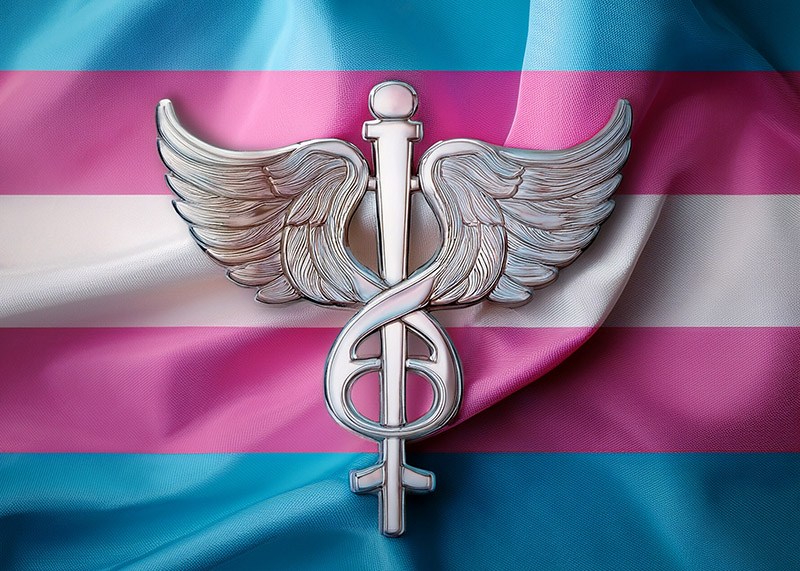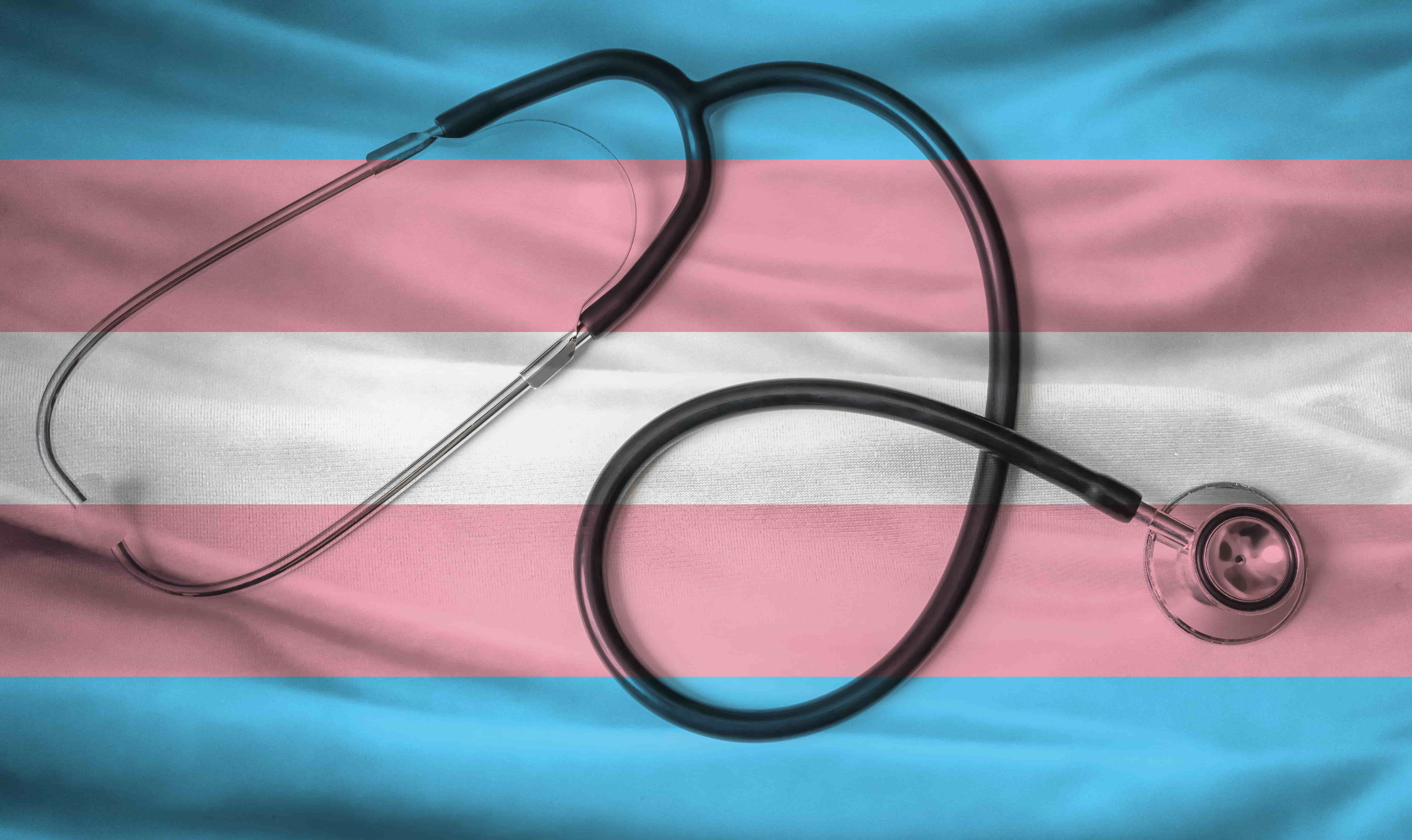Trans Health Experts Say Gender-Affirming Care Can Begin Earlier
Despite WPATH's lowering of age restrictions, experts say patients must be psychologically and emotionally mature before transitioning.

A global transgender health association has lowered its recommended minimum age for starting affirming health care treatments for the purpose of transitioning.
The World Professional Association for Transgender Health is saying, in its latest revision of its guidelines for care, that hormone therapy could be started at age 14, two years earlier than previously recommended, with some surgeries — depending on a patient’s individual development, mental state, and other factors — started as young as 15 or 17.
According to The Associated Press, which WPATH provided with an advance copy of its update ahead of publication in a medical journal later this year, the group acknowledged some risks associated with beginning gender-affirming care at younger ages, but stressed that each patient being treated for gender dysphoria must be judged on an individual basis, rather than a strict set of one-size-fits-all guidelines. WPATH also called it “unethical” and “harmful” to withhold gender-affirming treatments from youth who identify as transgender.
Youth who do not identify with their assigned sex at birth may start on drugs known as “puberty blockers” which temporarily prevent the development of secondary sex characteristics that may lead to heightened feelings of gender dysphoria. Those treatments, which are reversible, can either be stopped if a patient chooses not to transition, or can be dropped in favor of hormones that will assist in transitioning.
WPATH’s recommendations are that those assigned female at birth may start puberty blockers around ages 8 to 13, and those assigned male at age 10 to 15 — the same as the guidelines issued in the last revision of the standards of care.
While sex hormones, either estrogen or testosterone, can begin at age 14 under the new guidelines, it can be lifelong treatment that must be entered into with patients aware of the potential side-effects, which in some may include infertility, weight gain, increased risk of stroke, or higher blood pressure.
For trans boys, breast removal can begin as early as age 15, about a year after hormone treatment begins. Gender confirmation surgeries may begin as early as age 17 under the new guidance.
WPATH, a group of more than 3,000 medical providers and scientists that promotes evidence-based standards of care, says that the rationale for the revised age guidelines is based on a review of scientific evidence on the benefits and harms of transition-related care in trans-identifying youth. While such evidence is limited, the studies that have been done suggest that starting gender-affirming care at earlier ages can improve patients’ psychological well-being and reduce feelings of suicidal ideation.
Dr. Eli Coleman, the chair of WPATH’s standards of care and director of the University of Minnesota Medical School’s human sexuality program, told the AP that starting treatment earlier allows teens to experience physical puberty changes around the same time as other teens. But he also noted that other factors, like a patient’s emotional maturity, parental consent, longstanding discomfort with their assigned sex at birth, and psychological evaluations need to be considered before pursuing a full transition.
“Certainly there are adolescents that do not have the emotional or cognitive maturity to make an informed decision,” Coleman said. “That is why we recommend a careful multidisciplinary assessment.”
However, the Endocrine Society, another group offering guidance on transgender treatment, has adopted a more cautious approach to transitioning, generally recommending each stage occur a year or two later than the WPATH guidelines. And while the American Academy of Pediattrics and the American Medical Association support allowing kids to seek out gender-affirming care, they don’t offer age-specific guidance.
While the latest WPATH guidelines include a host of recommendations for transgender adults, it is the guidance on adolescents that is most likely to generate controversy — or even be intentionally misrepresented or misreported by bad-intentioned actors — due to the larger societal backlash against the transgender community and politically-motivated attempts to pass legislation barring doctors from prescribing gender-affirming treatments to youth.
Opponents of gender-affirming care point to an increase in trans-identifying minors — especially people assigned female as birth — seeking gender-affirming health care options. They argue that some medical providers are too quick to push youth into pursuing transition-related hormone treatments that have irreversible effects.
Proponents of access to gender-affirming care say the increase in youth seeking out care is that they are more aware of their medical options and — at least in general — face less stigma than previous generations.
Psychologist Erica Anderson, who resigned her post as a board member of WPATH last year but remains a regular member of the organization, has previously voiced concerns about “sloppy” treatment in which trans-identifying youth were linked with gender-affirming care before undergoing the needed counseling and mental health evaluations to ensure they understood the effects of their decision to pursue transitioning.
While Anderson supports the updated guidelines on care for trans-identifying youth, she says some exasperated parents have told her that medical providers aren’t taking enough time to evaluate minor patients before prescribing gender-affirming treatments. She also notes that there are a number of gender-questioning children who are not certain of their trans identity who wouldn’t be good candidates for receiving gender-affirming care.
That said, Anderson also condemns efforts by politicians who are calling to punish parents for allowing their children to access gender-affirming care, or those who are pushing for across-the-board bans on transgender medical treatments, acts which she calls “absolutely cruel.”
Dr. Joel Frader, a Northwestern University professor of pediatrics and bioethics who advises a gender treatment program at Chicago’s Lurie Children’s Hospital, said guidelines, need to rely on psychological readiness, not age — further underscoring the importance of individual assessments.
Frader told the AP that brain science shows youth can make logical decisions by age 14, but are prone to risk-tasking and often don’t take long-term consequences of their actions into account until they’re much older.
Coleen Williams, a psychologist at Boston Children’s Hospital’s Gender Multispecialty Service, said treatment decisions must be collaborative and individualized.
“Medical intervention in any realm is not a one-size-fits-all option,” Williams said.
Support Metro Weekly’s Journalism
These are challenging times for news organizations. And yet it’s crucial we stay active and provide vital resources and information to both our local readers and the world. So won’t you please take a moment and consider supporting Metro Weekly with a membership? For as little as $5 a month, you can help ensure Metro Weekly magazine and MetroWeekly.com remain free, viable resources as we provide the best, most diverse, culturally-resonant LGBTQ coverage in both the D.C. region and around the world. Memberships come with exclusive perks and discounts, your own personal digital delivery of each week’s magazine (and an archive), access to our Member's Lounge when it launches this fall, and exclusive members-only items like Metro Weekly Membership Mugs and Tote Bags! Check out all our membership levels here and please join us today!

































You must be logged in to post a comment.